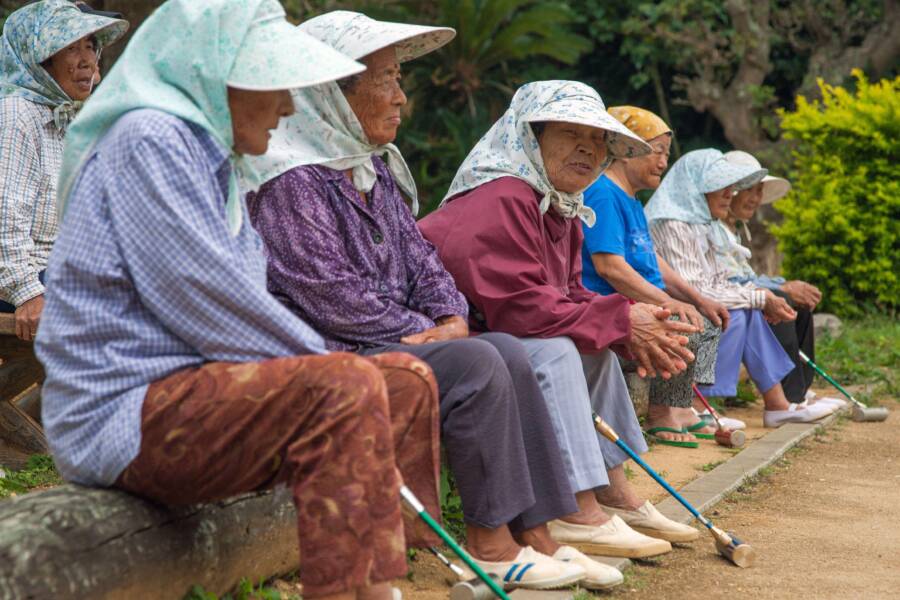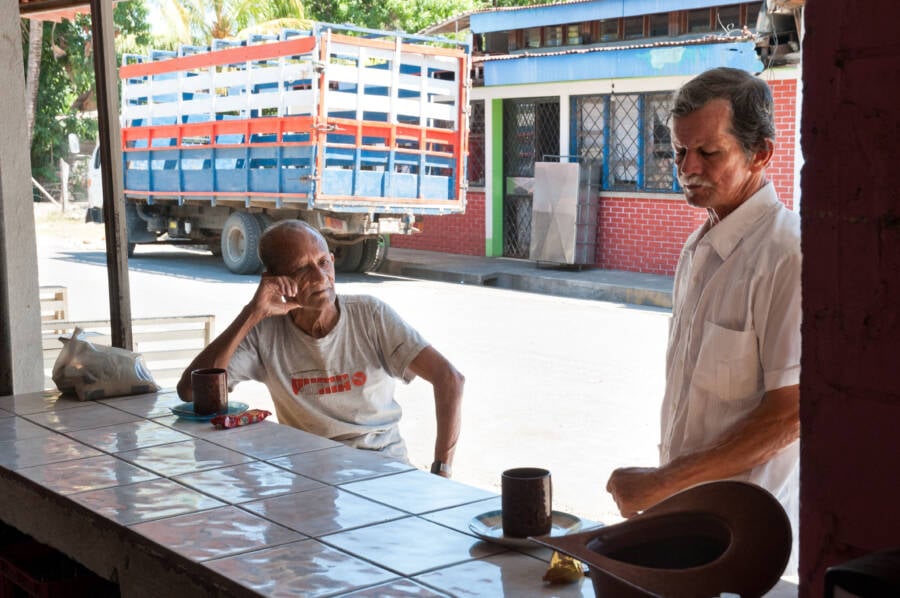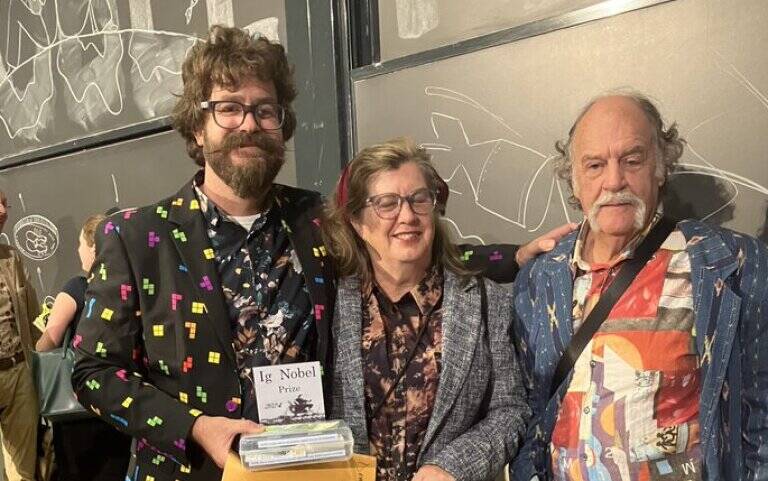The new study found that longevity claims in blue zones, or regions famous for long lifespans, are largely based on clerical errors and pension fraud.

philipjbigg / Alamy Stock PhotoElderly women playing a ballgame in Okinawa, Japan, one of the five supposed blue zones.
The concept of “blue zones,” or areas where people supposedly live longer and healthier lives, gained widespread attention after journalist Dan Buettner coined the term in the early 2000s and wrote several books about the phenomenon. These regions were said to boast astonishingly high numbers of supercentenarians, or people who live past 110 years. However, this concept may have just been debunked.
A new study from University College London researcher Saul Justin Newman found that data related to claims of extreme old age is rife with clerical errors and pension fraud. Many of the supposed supercentenarians lack birth certificates or valid documentation proving their ages. And many people in supposed “blue zones” who’ve been reported to be over 100 are in fact dead, but were never registered as such
Newman’s findings indicate a strong correlation between high poverty rates and inflated reports of extreme longevity, calling into question the accuracy of these blue zone claims. For his research, Dr. Newman was awarded the Ig Nobel Prize in Demography, an award given to researchers who present humorous yet thought-provoking research.
The Rise Of Blue Zones In Contemporary Culture

Maxime Bessieres / Alamy Stock PhotoTwo men converse in a cafe in Nicoya, Costa Rica, an alleged blue zone.
The term “blue zones” was coined by Dan Buettner, a National Geographic Explorer and Fellow and journalist. After traveling to Okinawa in 2000, Buettner noticed a large and unusually active elderly population there and set out to identify other areas of the world that boasted high rates of longevity.
In the mid-2000s, he singled out five “blue zones”: Okinawa, Japan; Ikaria, Greece; Loma Linda, California; Sardinia, Italy; and Nicoya, Costa Rica. Buettner went on to write several books about how residents of these places were able to live so long.
Blue zones exploded in popularity with the release of the Netflix series Live to 100: Secrets of the Blue Zones in 2023. In the show, Dan Buettner travels to each of the five blue zones, meeting with supercentenarians there and learning about their lifestyles.
Buettner’s research rippled through the health and fitness communities, causing an influx of advice and content geared toward longevity based off of blue zones data.
However, new findings from Dr. Saul Justin Newman, a demographer at University College London, found that much of the data on these supercentenarians is inaccurate and even fraudulent, calling the legitimacy of blue zones into question and posing new challenges for a society obsessed with longevity.
A University Demographer Discovers Fraud Behind Longevity Claims

University College LondonDr. Saul Justin Newman (left) accepting the Ig Nobel award in Demography for his research on blue zone fraud.
In March of this year, researcher Dr. Saul Justin Newman published a study exploring the longevity claims of blue zones.
In his research, Dr. Newman discovered that only 18 percent of “exhaustively” validated supercentenarians in the world have a birth certificate, meaning that the remaining 82 percent do not have documentation to prove their impressive age. In the United States, Dr. Newman found that close to zero percent of supercentenarians had a birth certificate, and even worse, 10 percent of them already had a death certificate.
Overall, the introduction of birth certificates was associated with a 69-82 percent fall in the number of supercentenarians.
With the supercentenarians who did present a birth certificate or a birthdate, Dr. Newman also discovered a suspicious pattern in the dates.
“Supercentenarian birthdates are concentrated on days divisible by five: a pattern indicative of widespread fraud and error,” Dr. Newman wrote in his study.
Importantly, Dr. Newman established a strong correlation between poverty rates and the number of supercentenarians.
“Remarkable longevity is instead predicted by poverty, low per capita incomes, shorter life expectancy, higher crime rates, worse health, higher deprivation, fewer 90+ year olds, and residence in remote, overseas, and colonial territories,” Dr. Newman explained. It seems as though the number of supercentenarians increases as access to official government documentation decreases, and pressure to commit pension fraud increases.

UnsplashPeople enjoying the beaches on Ikaria Island, a blue zone in Greece.
In the blue zones of Sardinia, Okinawa, and Ikaria, low incomes, low literacy, high crime rate, and short life expectancy are higher than the national average.
“As such, relative poverty and short lifespan constitute unexpected predictors of centenarian and supercentenarian status and support a primary role of fraud and error in generating remarkable human age records,” Dr. Newman noted.
Additionally, Eurostat records dating back to 1990 place Ikaria at 109th out of 128 regions in Europe in terms of old-age life expectancy, and Sardinia at 51st.
“It’s amazing the cognitive dissonance going on. With the Greeks, by my estimates at least 72% of centenarians were dead, missing, or essentially pension-fraud cases,” Dr. Newman stated to The Conversation. Indeed, many of the reported supercentenarians across the board turned out to be dead.
“The secret to living to 110 was, don’t register your death,” Newman said.
For his work, Dr. Newman received an Ig Nobel prize in Demography, an award that recognizes scientific discoveries that “make people laugh, then think.”
After reading about widespread supercentenarian fraud, dive into the stories behind 11 of the oldest people in the world. Then, read about one of history’s grossest health practices: bloodletting.





